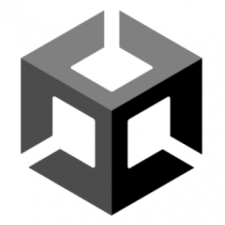Unity’s story starts back in 2002 with an OpenGl forum where Danish programmer Nicholas Francis was searching for assistance with a shader system. Not long after this post, Joachim Ante responded, leading to the pair creating an engine together. Shortly thereafter, David Helgason caught wind of the project and joined as the third member of the team.
Despite the three initially having goals of creating video games, there was a gap in the market for better technology to make them, so they got to work on what has now become one of the industry's most widely used game engines.
Acting under the name of Over the Edge Entertainment, David Helgason took on the role of CEO and the team of three planned to continue to expand their technology. Part of the success of Unity comes from its appeal to independent developers, looking to build a game but either aren’t aware of which platforms they could use or don’t have the funds to licence expensive game technology.
Unity’s first game
In any industry, when you create a product, the best way to sell that product is to show it in action. After two years of working on Unity, the trio decided to create a game using the engine. This would act as both a source of revenue and showcase the capabilities of the Unity engine.
In March 2005, Gooball was published and released for MacOS; the team then used the launch to fine-tune the Unity engine by analysing any weaknesses in the game and fixing them in the engine. As a trio that originally set out to be video game developers, they understood what other developers would want from a game engine and saw that the tools they made were adaptable and filled a gap in the market, and so the direction for the trio's focus on the Unity platform was cemented. After the release of Gooball, and using some of the revenue it generated, the next version of Unity began.
Unity Technologies
Over the course of the next few years, Unity underwent many updates and improvements, with the company also changing its name in 2007 to Unity Technologies. One of the core reasons for the platform's success has always been its accessibility. Unlike some other engines, Unity has a much softer learning curve, aided by the fact that its creators are people who loved to create rather than a big company simply setting out to make new software; this has been evident in Unity coming with a wealth of tutorial documentation, for example.
Unity also reached all-new heights when the iPhone was released and, more importantly, the App Store; this triggered Unity to create one of the very first engines that supported the new platform and helped to form the mobile app industry as we know it today. At this time, much of the gaming industry was still focused on console or PC gaming, putting Unity out in front for developers looking to create mobile games.
Another critical moment came in 2010 with the release of the Unity Asset Store: a digital marketplace that enabled developers to share in-game assets and, of course, sell them. The Asset Store has been another valuable addition to the Unity platform for large and small studios.
Making money
Unity was a hit. What started as three people creating a game engine intended to lower the entry barrier for developers became a global company with thousands of employees and developers using its platform. But from those small beginnings and a noble goal of creating more game makers there has to also be some sense of business… How does this platform continue to grow? How does it make money?
First, there are software subscriptions, the company's primary source of revenue. Despite Unity being a free engine, more premium features are available to those who wish to pay for it.
Unity also sells software solutions to developers. These solutions help developers who are building their games on the engine. In addition, Unity sells software to developers that allows them to monetise their games; this add-on acts as another stream of revenue for the platform.
These three core pillars act as the foundation of revenue streams for the Unity platform which overall has still left developers in a position to use it at a very affordable price. In return they have access to a brilliant piece of game making software.
Acquisitions and AI
After serving on the board in 2013, John Riccitiello went on to become CEO of Unity Technologies in 2014. Riccitiello had previous experience in various roles at EA and eventually sat as CEO there for some years. His move from the game development company to Unity was a major shift and with that came some change for Unity in the way of major acquisitions, but also some financial hardships.
Back in 2021, Unity acquired the Peter Jackson founded company Weta Digital for $1.625 billion in a combination of cash and stock. This acquisition came with ownership of Weta’s tools and a large portion of its engineering staff. This also highlights that Unity has expanded beyond just the creation of video games and is breaching into the world of cinema, with real-time filmmaking becoming more popular.
Despite the massive popularity of the Unity platform, the company was still struggling to make a profit from its three core pillars of revenue. In a bid to change that, it set out with an alternate plan of action - one that avoided changing the cost of Unity for developers and instead opted for a share of profits in having a cut of ads capital.
In 2022, Unity hit the headlines with the announcement that AppLovin was looking to buy the company. However, a final bid of $20 billion was rejected, and AppLovin stopped pursuing the company. Instead, Unity proposed a merger of AppLovin’s rival ad tech company, ironSource, which was completed in 2022 for $4.4 billion. This merger made ironSource the prime monetisation platform for mobile game developers using Unity’s technology and fulfilled the goal of finding a potential new source of profit.
Unity has also proven itself one of the giant companies aiming to be at the forefront of the artificial intelligence tools boom. This year, the company announced the release of two new AI tools, Unity Muse and Unity Sentis. Unity Create’s current president and general manager, Marc Whitten, stated that “every aspect of the creative process, from systems to objects to pixels, will be impacted by AI.” The statement backs the commitment that Unity is showing toward the future of AI on the platform.
Unity downfalls
Despite the massive success Unity has seen from its small beginnings, the company has also had some profitability issues. Unity peaked during the pandemic in 2021, but since then, stocks have taken a significant drop. Last year, the company tried to combat the issue by increasing its subscription fees.
In 2023, Unity is the most used game engine followed by Unreal Engine, with the former being used to create more than half of the games we see on today's market; a massive 70% of mobile game developers are going to Unity as a first choice. It’s also worth mentioning that due to the popularity of these two engines, they are also the core focus for educational bodies teaching game design in colleges and universities. So, with the change in increased fees last year, one could assume that Unity’s profits would have been rectified.
Alas, they are not.
Unity’s runtime fee
While the subscription price increase wasn’t enough to scare off users, it also appears that it isn’t enough to fix the bottom line over at Unity. This brings us to the recent announcement of Unity’s runtime fee for developers using its platform. News emerged that the massively popular platform would introduce an installation fee, triggering one of the most significant changes developers have seen from Unity in years.
The change would mean that in addition to subscription fees, developers will be charged every time their Unity-built games are downloaded. The changes are set to come into effect on January 1, 2024, and as things stand, will see a charge of $0.20 per install for any game that has amassed more than 200,000 installs.
The news sparked instant outrage in the community, with many concerned about the long-term ramifications of the change and some even questioning its legality. There are some tiers to the system that alter the runtime fee - in emerging markets, for example - but regardless of the ability for some to sidestep it, Unity is making major changes that will see the company earn substantially more money from games developed on its platform.
What’s next?
The latest in this controversial news comes from the company announcing on X (formerly known as Twitter) that the team has heard the industry's concerns and should be updating the policy in the coming days. One of the company’s co-founders, David Helgason, who now sits on the board claimed on his personal social channels that “we fucked up on many levels” and expressed that the way the new business model was announced was lacking and difficult to understand. It seems that the initial backlash from those who use the platform and a clear consensus from others that the terms were not shared in an informative manner will trigger some changes in the runtime fee policy before it even begins, but many developers won’t be happy until they hear that the fee is scrapped altogether.
Unity found its initial success for its ease of use and popularity with indie developers. Despite the company's massive growth, Unity is still trying to get ahead on its profits, but is the runtime fee really the answer? Or will its possible introduction trigger a shift away from the platform for developers?
Stay tuned as we bring the latest developments on Unity to you.






















